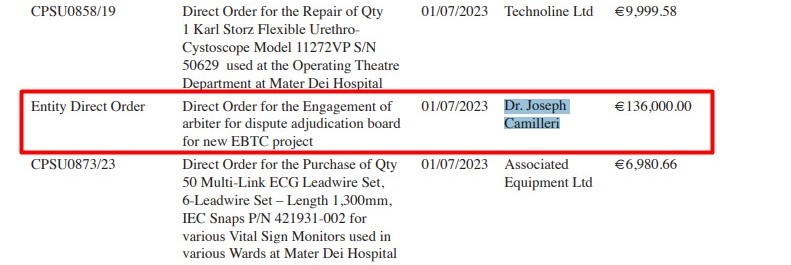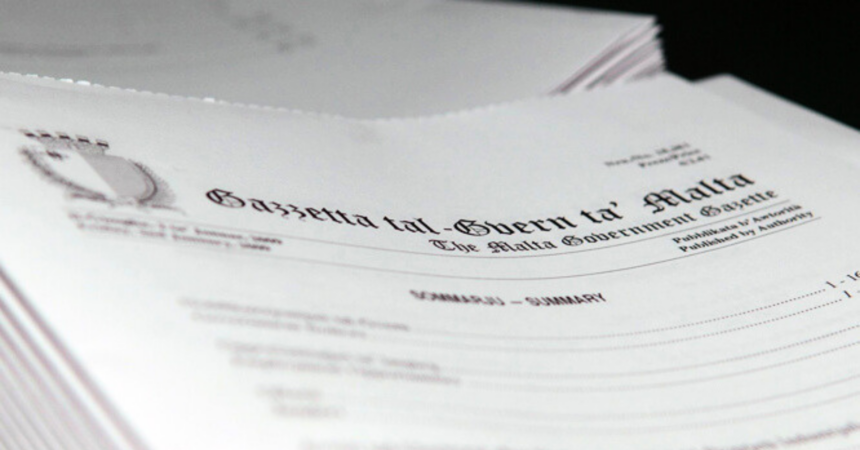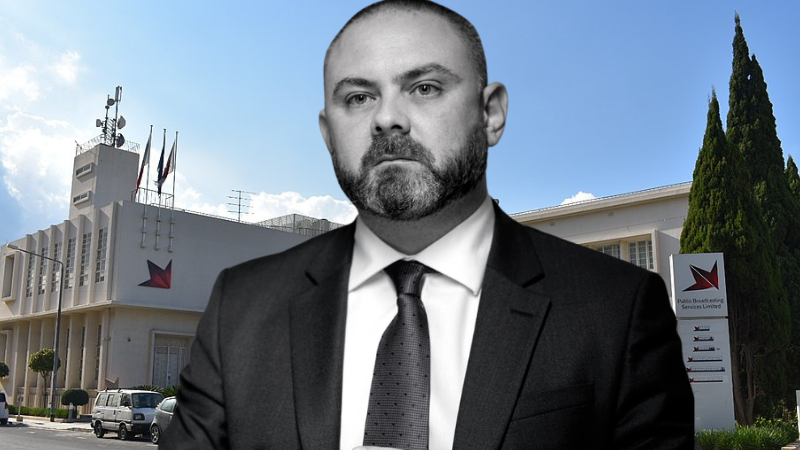The Government Gazette has published details of a €140,000 direct order by the health ministry that was never actually paid out, sowing doubt about the information the government is providing in light of similar instances.
The Gazette should be a reliable source of information to journalists and the public, but notices are repeatedly being disputed by those involved. This means journalists cannot take the information as accurate and need to conduct their own research to verify whether what the government is announcing is, in fact, true.
In this case, further research by The Shift revealed the payment was listed as being made to lawyer Joe Camilleri. Yet both Camilleri and health ministry sources confirmed the payment had never been made.
It was published alongside other direct orders by the health ministry’s procurement unit (the CPSU), indicating €136,000 was paid last July for arbitration proceedings in an ongoing project for a new blood bank.
When asked by The Shift, Camilleri said he had been “approached regarding an engagement to act as arbiter” by the CPSU but was later “informed his services would not be availed of.”
“No services were ever actually provided by me, let alone invoiced by and/or paid to me,” he said, indicating he was unaware of the erroneous information listed in the Government Gazette.

The direct order was apparently never meted out despite being published in the Government Gazette on 5 March.
Sources within the health ministry confirmed to The Shift that while “Camilleri was initially approached,” a contract for his services “never materialised and no services were given.”
It is understood that another lawyer is now providing the arbitration services for the project, but no information on this new deal has been published in the Government Gazette.
This mistake follows a string of similar incidents in which people reported inaccuracies or errors in previous Government Gazettes to The Shift.
The issues raise concerns, considering that the Government Gazette is meant to serve as an accurate reference point for the government’s finances and expenditure.
By law, government entities must publish a list of tenders and direct orders awarded every six months.
According to procurement rules, direct orders over €10,000 should only be issued in “exceptional” cases where a regular tendering process cannot be undertaken. However, this rule is routinely ignored, and tens of millions of euro in direct orders are issued each year, with some government entities publishing them years later.
The project
The services were contracted for the New Establishment of Blood Tissues and Cells project. A publicly available report by legal firm Ganado Advocates noted the project would create new premises to conduct blood transfusion services and provide additional facilities.
The report was issued as part of a legal review of existing legislation that may impact the new premises. Ganado was awarded a tender for this legal review in April 2022.
The €30 million project to build a new blood bank close to Mater Dei Hospital was announced by former Health Minister Chris Fearne last March.
The project is expected to be completed in 2025 and financed through the European Union’s Recovery and Resilience Facility, a post-COVID-19 financial aid package.














Will be interesting to find out who has in fact received payment and his/her connection with the Labour Party.
I doubt if we will ever know, even if they know it will get buried, of a greater concern is how many more cheques have been issued? Sounds like the “disabled” credit story again.
It is a case of the Left hand doesn’t know what the Right is doing. It causes confusion, inefficiency and mistakes.
This is no mistake, rest assured.
I don’t believe that this is a mistake. It may be a way to hide some illegal payment to someone using the name of someone else. These fraudsters might be the ones connected to the false certifications of consultants in the scam for social security benefits. I would only be happy if this is investigated by the police.